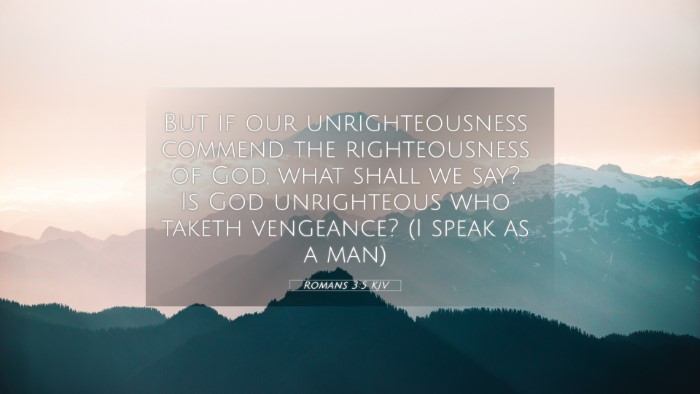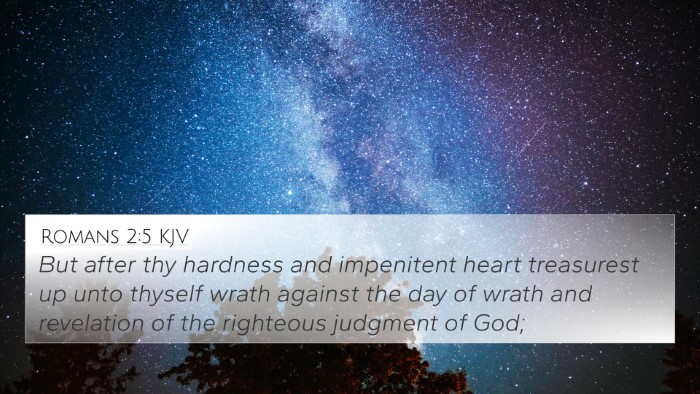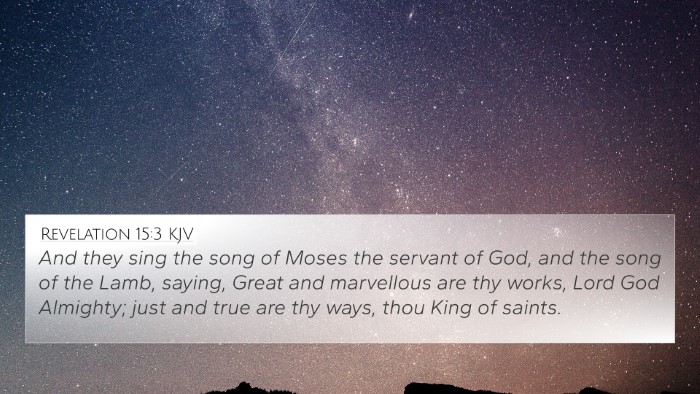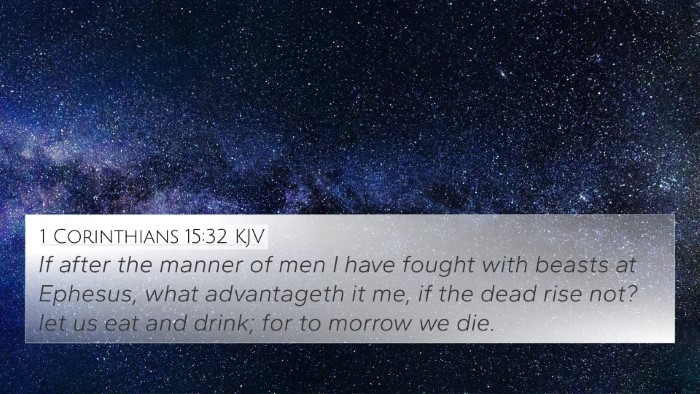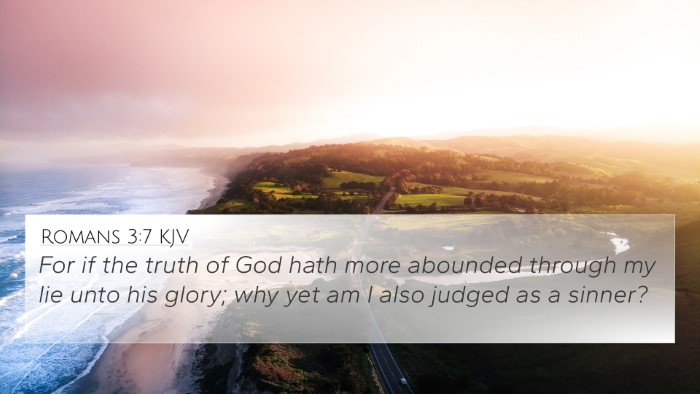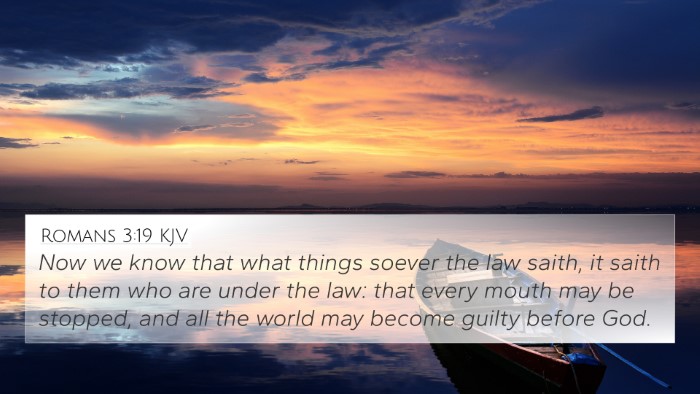Understanding Romans 3:5
Verse: Romans 3:5 - "But if our unrighteousness brings out God’s righteousness more clearly, what shall we say? That God is unjust in bringing his wrath on us? I am using a human argument." (NIV)
This verse addresses the relationship between human unrighteousness and God's righteousness, posing a rhetorical question regarding the implications of sin in relation to God's justice. The Apostle Paul, in this passage, engages with an anticipated objection to his teaching about grace and justification.
Summary of Commentary Insights
Drawing from various public domain commentaries, we can gather significant insights into the meaning and context of Romans 3:5:
- Matthew Henry: Henry interprets the verse as Paul grappling with the apparent contradiction between God's righteousness and human sin. He emphasizes that while human sin showcases God's justice, it does not imply that God is unjust for punishing sin.
- Albert Barnes: Barnes points out that this rhetorical approach serves to clarify the nature of God's justice. He notes that God's righteousness shines even more brightly against the backdrop of human failure, hence human unrighteousness does not justify sin.
- Adam Clarke: Clarke elaborates on the idea that human rebellion inadvertently highlights God's nature. He insists that the complaint regarding God’s justice in punishing sin overlooks the character of God as perfectly holy.
Key Themes and Connections
Romans 3:5 connects deeply with several key biblical themes and is cross-referenced with various other scriptures, illustrating the interconnectedness of biblical teaching:
1. God’s Justice and Righteousness
This verse encourages an exploration of the justice of God in light of human imperfection. Key cross-references include:
- Romans 1:18: "The wrath of God is being revealed from heaven against all the godlessness and wickedness of people..."
- Ephesians 2:1-3: Emphasizes mankind's state without Christ, highlighting the severity of sin.
2. The Purpose of Law
Paul argues that the moral law serves to reveal our unrighteousness, leading us to understand our need for grace. Notable references include:
- Galatians 3:24: "So the law was our guardian until Christ came..."
- Romans 7:7: "What shall we say, then? Is the law sinful? Certainly not!"
3. Grace and Justification
Grace shines as a central theme in addressing the consequences of our unrighteousness:
- Romans 3:24: "And all are justified freely by his grace through the redemption that came by Christ Jesus."
- Titus 3:5: "He saved us, not because of righteous things we had done, but because of his mercy..."
Comparative Bible Verse Analysis
In understanding Romans 3:5, we can also draw parallels with other scriptures that affirm or contest its themes:
- Job 9:2: "Indeed, I know that this is true. But how can mere mortals prove their innocence before God?"
- Psalms 51:4: "Against you, you only, have I sinned and done what is evil in your sight..."
Tools for Bible Cross-Referencing
Utilizing cross-references can enrich one's understanding of themes found in Romans 3:5. Some useful tools include:
- Bible concordance to locate similar themes and words.
- Cross-reference Bible study guides for thematic exploration.
- Bible reference resources, including commentaries and study Bibles.
Inter-Biblical Dialogue
Exploring the connections between the Old and New Testament can provide deeper insights into the implications of this passage:
- Habakkuk 1:13: "Your eyes are too pure to look on evil; you cannot tolerate wrongdoing..."
- Matthew 5:17: "Do not think that I have come to abolish the Law or the Prophets; I have not come to abolish them but to fulfill them."
Conclusion
In conclusion, Romans 3:5 serves not only as a crucial teaching on the nature of God’s righteousness in contrast to human unrighteousness but also opens the door for thematic explorations that link various biblical texts. Through careful cross-referencing, believers can deepen their understanding of the Scriptures, enhancing their spiritual insight and relational knowledge of God.

